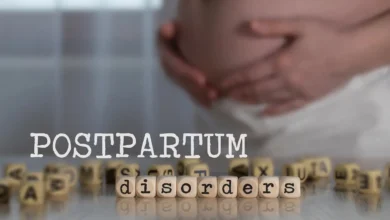1. Respect Everyone with Respect
Respect is one of the most important lessons that a father can impart. Children watch how their fathers treat others, especially their mothers. These interactions are a model for how children will interact with others in the future.
Dads must model respect in all their relationships by demonstrating kindness and consideration. Children internalize values when they see their father treat everyone with respect, from family to waitstaff. Girls learn to expect respect from their future partners, and boys learn to respect others and women. This lesson will influence their adult lives, including how they manage their careers and personal relationships.

How to Show Respect In a Practical Way
- Use Polite language: Encourage children to use “please” or “thank you” during their daily interactions. Teach your children the importance of using words to express gratitude and how they can make someone’s day brighter.
- Active listening: Teach children to listen when others are speaking. Remind children that it is important to understand another person’s perspective as well as their own.
- Forgive and Apologize: Teach your students that forgiving and admitting to mistakes are important components of healthy relationships. Demonstrate the proper way to resolve conflicts, pointing out that everyone makes mistakes.
Real-Life Examples
Consider everyday situations in which respect is shown. These moments, whether it is the way dad speaks to his wife or interacts with a clerk at a store, become lessons. Children learn respect when they see their father thanking service employees or helping a neighbor.
2. Parents and Housework are Partners
The dynamics of parenting and household duties can set the tone for future relationships. In many families, the traditional gender roles have been maintained, with mothers handling most of the childcare and household chores. Dads can break the mold by demonstrating a partnership-based approach to parenting.
Fathers who actively take part in parenting and household duties demonstrate the importance of sharing responsibilities. This lesson shows children that parenting involves a team effort and not just one person.
How to Maintain a Balanced Household
- Share Tasks: Include children in household chores and make it a family affair. Teamwork can be reinforced by cooking, cleaning, and organizing together. While feeling accomplished, children can gain valuable skills.
- Led by Example, Fathers can demonstrate their commitment to shared responsibility by taking the initiative, whether they are cooking dinner or helping children with homework. Children who see their fathers doing these things understand that all family members contribute to the well-being of the household.
- Discuss the Roles: Have a conversation with your children about the roles in the family. Also, discuss the importance of collaborating. Encourage your children to discuss how to divide responsibilities and why working together is beneficial.
Effect on Future Relationships
Children’s future relationships can be greatly influenced by the lessons they learn about household partnership. As they understand that sharing responsibilities leads to healthier dynamics, children are more inclined to seek out equitable partnerships. Fathers can help their children to develop the skills they need in personal and professional situations by modeling this behavior.
3. Practice Moderation
Teaching children moderation in the face of temptations is essential. Finding balance in life is important, whether it’s indulging in sweets or watching TV. By modeling healthy behaviors, fathers can teach their children the importance of moderation.
This understanding helps children avoid developing bad habits by enjoying their hobbies, treats, or other leisure activities in moderation. This understanding impacts their choices even as they get older.
Encourage Balanced Choices
- Limits: Set guidelines for screen and treat consumption. Discuss why moderation is so important. Create a rule in your family that limits screen time on weekdays and encourages kids to do other activities, such as reading or sports.
- Diversify activities: Encourage your child to explore a variety of interests, such as sports or arts, instead of focusing on one. Introduce them to a variety of hobbies and you will help them develop an all-rounded personality.
- Discuss Consequences: Discuss the negative consequences of excessive consumption, reinforcing moderation. Tell stories of how excessive eating can cause health problems or burnout. This will help make the concept more relatable.
Real-World Application
Moderation is important in the family meal. When a father encourages children to eat desserts but emphasizes that fruits and vegetables are important, he teaches them the value of balance. These lessons apply to many other aspects of life.
4. You Can Show Your Emotions
Fathers can teach their children to express their emotions in a world where it is often discouraged. Acknowledging and expressing feelings, whether they are sadness, joy, or frustration, is important for mental health.
Fathers should be comfortable showing their emotions. Whether it is shedding a few tears during a heart-warming moment or jubilating over a win, they should do so with enthusiasm. Children learn to be more vulnerable when they see their fathers show emotion.
How to Encourage Emotional Expressivity
- Open Discussions: Create a safe environment for children to express their emotions without fear of judgment. Listen to what they say and ask them about their feelings.
- Show Emotional Awareness: Talk to your children about your emotions, why you feel that way, and what you do with them. It encourages your children to be open with their feelings when they see you do so.
- Encourage Creative Expression: Let children express their feelings through music, art, or writing. The creative process can help children express feelings that they might struggle to articulate verbally.

The Importance Of Emotional Intelligence
Emotional intelligence plays a crucial role in building and navigating relationships. Children who can communicate their feelings healthily tend to be more understanding and empathetic, which can help them build stronger relationships with adults and peers. Fathers can help develop emotional intelligence through encouraging discussion about feelings and offering support.
5. You Can Fail
Learning how to deal with failure is important. Dads can influence their children’s view of failure by pointing out that it is a step towards success. Losing is a valuable lesson that can help you grow and be resilient.
Kids learn to handle defeat gracefully when they see their fathers do so. Whether it is a lost project or a game, setbacks can be opportunities for improvement.
Teaching Resilience through Failure
- Share Your Personal Stories: Discuss the times you failed and what you have learned from them. This honesty can help children understand failures and show them that they are not alone.
- Reward Efforts and Not Just Results. Reinforce that it is important to try harder than to always win. Celebrate your achievements that are based more on improvement and effort than on results.
- Promote a Growth Mentality: Help your children to understand that their abilities can be improved through hard work and dedication. Teach children that perseverance in the face of adversity will lead to success.
Building Confidence through Failure
Fathers can build confidence and resilience in their children by normalizing failure. Children who accept failure as a part of learning are more willing to try new things and take risks.
6. Understanding Bodily Functions
Dads are usually the masters of humorous playfulness. It is important to teach children about appropriate behavior when it comes to bodily functions. Some bodily functions can make you laugh, but others have social boundaries.
Fathers can help children learn when it is acceptable to laugh, and when to remain discreet. Understanding social norms will help them to navigate social situations in their life.
Reinforcing Social Etiquette
- Discuss Appropriate situations: Discuss when certain behaviors are appropriate and when they’re not, such as burping or laughing when something funny happens. Help them to understand the context and appropriateness.
- Use humor wisely Teach your children that some bodily functions are funny but there is a right time and place to do them. In a formal environment, a joke that is funny in the living room might not be appropriate.
- Model Discretion: Show children how to behave appropriately in different settings and reinforce social boundaries. Children learn through observation. Therefore, be respectful in both public and private settings.
Humor and Family Dynamics
It’s important to teach your children about boundaries, but it is also important to acknowledge that humor can strengthen the family bond. Dads who make fun of silly situations, while still teaching their children proper behavior, create a balance that combines fun and responsibility. This can encourage open communication and create a feeling of safety for children, who are then able to express themselves freely without fear of judgment.
Reflections on My Father
Reflecting on my relationship with him, I see that he taught me valuable life lessons that have helped to shape who I am. My dad was not the most expressive or conventional father, er but the lessons he imparted were lasting and profound. Here are some of the personal lessons I learned from him.
No One is Perfect, and That’s Okay
Early on, I realized that perfectionism is unrealistic. While flawed, my dad showed me that mistakes are okay. It was his effort to be the best father possible, despite all of his flaws. He showed me this.s
It is important to give your best effort.
Family is Everything
My father was a family-oriented man. The importance of loyalty and his unwavering dedication to the family taught me. He put his family’s needs ahead of his own and reminded me that the family always comes first. This lesson instilled a sense of responsibility in me and a love for my family.
Health is Wealth
My father taught me the importance of health. He always stressed the importance of taking care of yourself and taking preventive measures. In light of the current global challenges, his reminders on cleanliness and health have become even more important. This belief that health is essential to living a happy life continues to resonate with me.
Food is Life
Our family has always enjoyed good food. My dad taught me how to enjoy the simple things in life by sharing meals. Not only is it about nutrition, but also connection and love. Food has become a part of our shared memories.
Education is the Key
My parents made many sacrifices to ensure that I received an excellent education. My father believed that education would lead to a better future, and I was inspired by his dedication to learning. To this day, I try to live up to his example by constantly seeking knowledge and encouraging others to do the same.

Patience and Perseverance
The phrase “We’ll eventually get there” that my dad used became a motto for me. This taught me that patience and hardwork will pay off, even if some goals take time to reach. This perspective helped me overcome various obstacles in my life by reminding me of the importance of persistence.
Life Lessons Beyond Words
My dad was not a great talker but he taught me a lot through his actions. The impact of his dedication to his family, hard work and resilience when faced with challenges has left a lasting impression on me. The lessons he taught are more than words. I will always treasure them.
Conclusion
The impact of dads on their children is immeasurable. They teach them important lessons that go beyond everyday life. These lessons, which range from emotional expression to respect and partnership, shape the character and worldview of their children.



